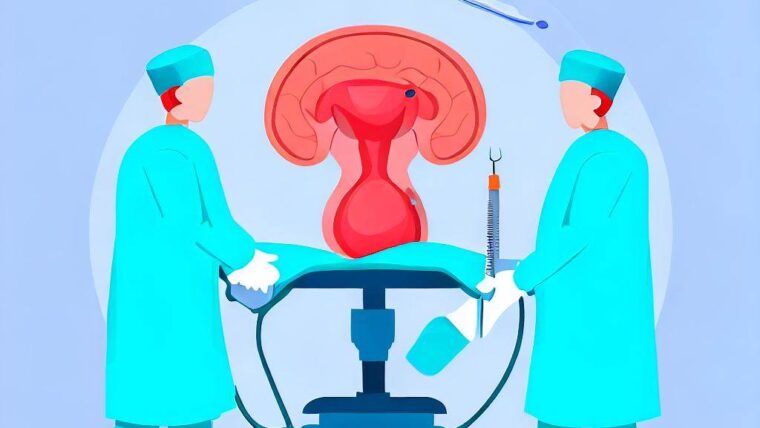Urinary tract infections (UTI) are a common infection that affects the urinary system, including the bladder, kidneys, and urethra. They are caused by bacteria entering the urinary tract and multiplying, leading to inflammation and infection. UTIs can cause a range of symptoms, including pain or burning during urination, frequent urination, and cloudy or strong-smelling urine.
When to See a Urinary Tract Infection Specialist
If you experience symptoms of a UTI, such as pain or burning during urination, it’s important to seek medical attention. While some mild UTIs can be treated with over-the-counter medication, more severe cases may require the expertise of a urinary tract infection specialist, such as a urologist.
You may also need to see a specialist if you experience recurring UTIs, have a history of kidney problems, or are pregnant. It’s important to seek prompt medical attention to prevent complications such as kidney damage or sepsis.
What to Expect During Your Appointment with a UTI Specialist
During your appointment with a UTI specialist, they will likely ask about your symptoms and medical history. They may also perform a physical exam and order tests, such as a urine culture, to confirm a diagnosis. The results of these tests will help your doctor determine the best course of treatment for your UTI.
Urinary Tract Infection Treatment Options
Treatment for UTIs typically involves antibiotics to clear the infection. Your doctor may also recommend pain medication to help relieve discomfort while you recover. In severe cases, hospitalization may be necessary.
It’s important to follow your doctor’s instructions carefully and complete the full course of antibiotics to prevent the infection from returning. If you experience recurrent UTIs, your doctor may recommend further testing or preventative measures, such as taking a low dose of antibiotics or using a urinary tract infection prevention product.
Preventing Urinary Tract Infections
There are several steps you can take to help prevent UTIs, such as drinking plenty of water, urinating frequently, wiping front to back after using the bathroom, and avoiding irritants such as douches and feminine hygiene sprays. Women may also benefit from urinating before and after sexual activity to help flush out any bacteria.
If you have a history of recurrent UTIs, your doctor may recommend additional preventative measures, such as taking a low dose of antibiotics, drinking cranberry juice, or using a urinary tract infection prevention product.
Conclusion
Urinary tract infections can be a painful and uncomfortable condition, but with prompt medical attention and proper treatment, most cases can be successfully treated. If you experience symptoms of a UTI, don’t hesitate to seek medical attention from a urinary tract infection specialist
FAQs
Q: Can I treat a UTI with over-the-counter medication?
A: Mild UTIs may be treated with over-the-counter medication, but more severe cases may require prescription antibiotics prescribed by a specialist.
Q: What are some common causes of UTIs?
A: UTIs are commonly caused by bacteria entering the urinary tract, but other factors such as certain medications, sexual activity, and health conditions such as diabetes can also increase the risk of developing a UTI.
Q: How can I prevent UTIs from recurring?
A: Preventative measures such as drinking plenty of water, urinating frequently, wiping front to back after using the bathroom, and avoiding irritants can help prevent UTIs from recurring. Your doctor may also recommend additional preventative measures such as taking a low dose of antibiotics or using a urinary tract infection prevention product.
Q: Is it normal to experience urinary incontinence after a UTI?
A: Urinary incontinence is not a common symptom of UTIs, but it is possible for inflammation and infection to cause temporary bladder dysfunction. If you experience urinary incontinence after a UTI, it’s important to speak with your doctor.
Q: Can men get UTIs?
A: While UTIs are more common in women, men can also develop UTIs. It’s important for men to seek medical attention if they experience symptoms of a UTI, as it may indicate an underlying health condition.
Q: Can UTIs cause kidney damage?
A: If left untreated, UTIs can potentially cause kidney damage and other complications. It’s important to seek prompt medical attention if you experience symptoms of a UTI to prevent complications from occurring.
In conclusion, urinary tract infections can be a painful and uncomfortable condition, but seeking medical attention from a urinary tract infection specialist can help ensure prompt and effective treatment. By taking preventative measures and following your doctor’s instructions, you can reduce your risk of developing UTIs and prevent complications from occurring. Don’t hesitate to speak with a specialist if you experience symptoms of a UTI or have a history of recurrent UTIs.




